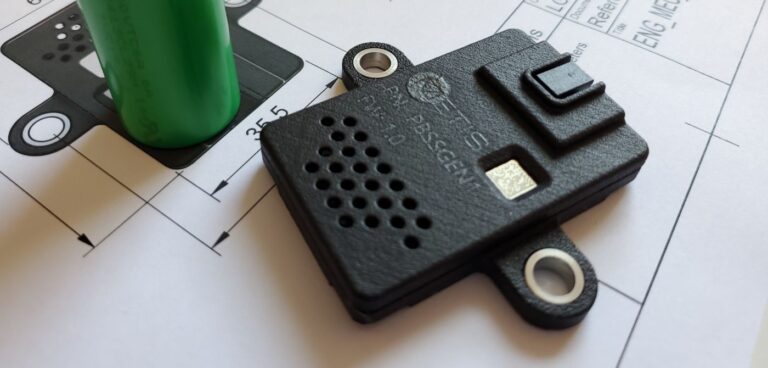The successful certification of Metis Engineering’s production Battery Safety Sensor has been announced. The solution, which has been developed to monitor the health of lithium-ion battery packs used within hybrid and electric vehicles, is capable of detecting cell venting within seconds, an early indicator that a battery is about to fail.
To meet demand from an ever-increasing number of OEMs and Tier 1s who wish to use the solution within Automotive Safety Integrity Level B applications, Metis Engineering will begin manufacturing the production version of the Battery Safety Sensor in the UK.
Metis Engineering has designed its Battery Safety Sensor to monitor and gather information on several environmental parameters which are required to ensure the battery operates in optimal conditions. These include Volatile Organic Compounds (VOCs), pressure changes, humidity, dew point and shock loads. The data can then be used in conjunction with inputs including cell temperatures to check for cell venting. Data from the sensor is sent through a configurable CAN interface to a control unit like an EV’s ECU to alert the driver of cell venting. The Battery Safety Sensor can also cut the circuit to the battery pack, enabling the power system to cool before thermal runaway can occur.
An optional accelerometer can also be included with the Battery Safety Sensor to enable the Metis component to monitor shock loads up to 24G and impact durations which battery modules or packs may be subjected too during an accident. If a collision occurs, the sensor can show if the battery or batteries were subjected to unsafe load levels and for how long this lasted. The information can then be leveraged by engineers to decide how best to proceed.
A beta version of the sensor was released in April 2022 and was tested by several EV OEMs and battery manufacturers. Metis gathered feedback on the beta version which was then used to improve the latest version of the product.
“Our Battery Safety Sensor measures pressure change and VOCs for the detection of cell venting, which is an early stage of thermal runaway,” explained Joe Holdsworth, managing director, Metis Engineering. “It also monitors humidity, dew point and air temperature parameters required to ensure that the battery continues to operate in optimum conditions as well as many other useful features such as a low power mode and configurable CAN settings.”
Holdsworth continued, “Thankfully the occurrences of EV battery fires are very rare, but when they do occur, they are usually catastrophic for the vehicle. As cells age the chance of one in a pack of hundreds or thousands going bad increases significantly. The early detection of cell venting is vital to the safety of the vehicle’s passengers and everything in the immediate proximity; we hope that this sensor offers an affordable part of the solution.”
Metis Engineering’s sensor has been developed using ISO 26262 processes and has been thoroughly tested to ISO Automotive Standards.


